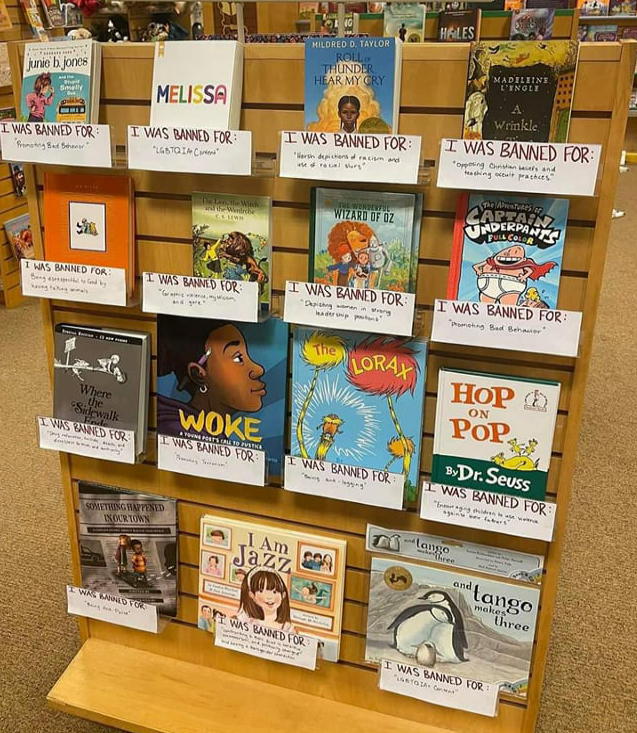Banned books back in the news
Published 10:16 am Thursday, March 23, 2023
|
Getting your Trinity Audio player ready...
|
Alabama schools, libraries, and book stories can currently boast that no books are banned from their facilities.
“We don’t ban books here,” Kevin Pearcy, Director of the Greenville-Butler County Public Library (GBCPL) said.
Kathryn Tomlin, director of the Luverne Public Library, confirmed Crenshaw County libraries do not ban books from public access.
“No, we don’t ban books here,” Tomlin said. “We did restrict one adult series to those over the age of 18, though.”
This restricted series included the “50 Shades of Gray” books by E. L. James.
Hayneville Public Library is no different.
“We don’t ban books,” Rutha Davis-Bonner said. “People in my age group grew up on those books. There’s no need to ban them now.”
But this isn’t the case in surrounding states. There are currently U.S. 32 states that have banned certain children’s books from all three of these outlets.
Texas has banned 801 children’s books to date, and Mississippi has 22 books on the banned list. Florida, Georgia, and Tennessee have also jumped on the banned book bandwagon.
“Nationwide, America has 2,532 individual books banned,” said Jonathan Friedman, director of Free Expression and Education Programs in a recent report. “Against the backdrop of other efforts to roll back civil liberties and erode democratic norms, the dynamics surrounding school book bans are a canary in the coal mine for the future of American democracy, public education, and free expression.”
Alabama is among the majority of states that does not allow reactive parents groups to control what reading material a child can have access to; whether that material is in a school library or a public library.
“ [Of these bans], 96 % were enacted without following the best practice guidelines for book challenges outlined by the American Library Association (ALA) and the National Coalition Against Censorship (NCAC),” Friedman said.
Book bans are often focused on imposing restrictions on all students and families based on the preferences of those calling for the bans, Friedman explained.
“We always respect the parents’ wishes,” Pearcy said. “We let the parents control the books a child can read. We don’t control that. That’s a parental responsibility. If we restrict books, that’s us taking responsibility away from parents, and we don’t do that.”
Friedman’s report paints a dark picture for access to certain books in some states.
Students have a First Amendment right to access information and ideas, said Friedman. Book bans are a clear threat to those rights. Groups which advocate for bans often seek to remove books with a main character of color, or LGBTQ+ characters.
His report also reveals that the most banned authors include winners of the Nobel Prize in Literature, the National Book Award for Young People’s Literature, the Newbery Award, and the Caldecott Medal.
Several titles currently on the ban list are titles familiar to most parents: “The Lorax” by Dr. Seuss was banned for being anti-logging; “Hop on Pop”, also by Seuss, was banned for encouraging children to use violence against their fathers; “A Wrinkle in Time” by Madeleine L’engle was banned for opposing Christian beliefs and teaching occult practices; “Winnie the Pooh” by A.A. Milne was banned for being disrespectful to God for having talking animals; and “The Wonderful Wizard of Oz” by L. Frank Baum was banned for depicting women in strong leadership positions.
Although most of the groups advocating for book bans have existed for many years now, about 70 percent have been formed since 2021, said Friedman.
Experts agree banning books takes away more than just one book from a child.
“This is very much about the rights of LGBTQ people and people of color to exist and to thrive in a society with full power and equality, if not equity,” Kyle Lukoff, author of two banned books, said.
Area residents, as well as citizens across Alabama, support keeping books in their schools, libraries, or book stores.
“We believe in the freedom to read,” said Pearcy.






